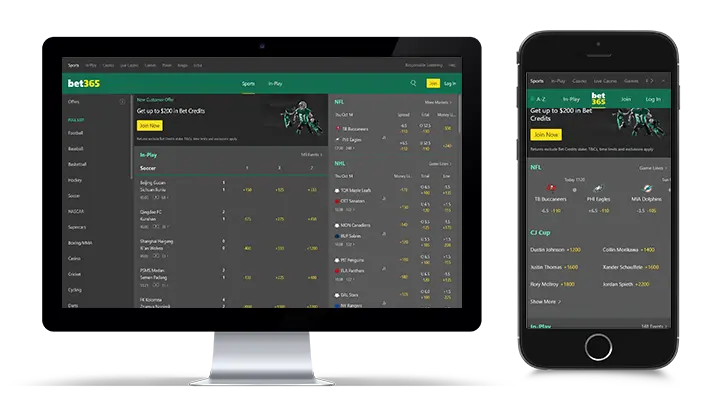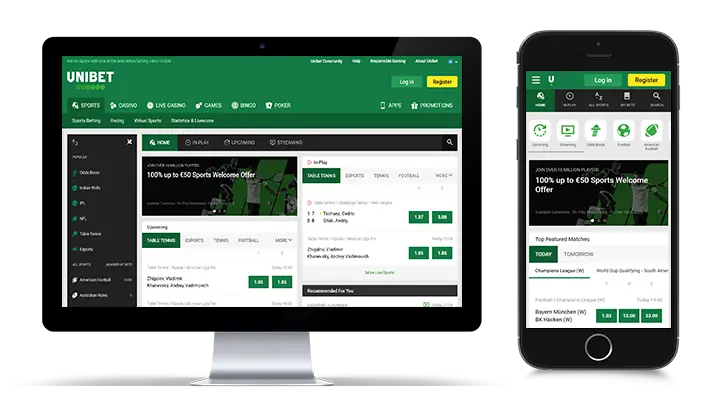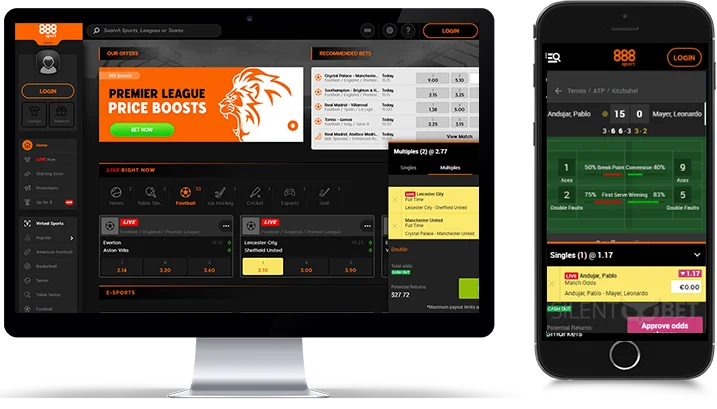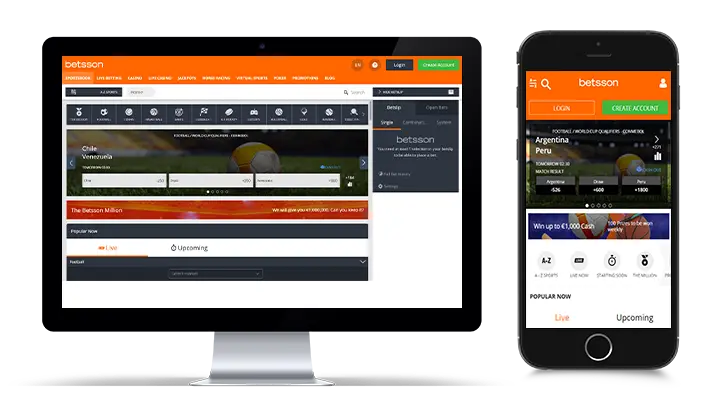Spain has a well-developed sports betting market, with annual gross revenue that has been steadily on the rise since 2014. The bookmaking industry in the country generated €356 million in gross betting revenue in the year 2018 alone.
Soccer is almost like a second religion in this country and it is not difficult to see why. Spain is the motherland of two of the most successful and supported soccer clubs out there, Real Madrid and Barcelona.
The Spanish’ love for competitive sports also extends to tennis, basketball, cycling, golf, and motorcycling, all of which are quite popular among local bettors.
This article provides you with an overview of the current legal sports betting climate in Spain and the legislation that pertains to such activities. It also gives you in-depth information about bonuses and the most popular banking options punters from Spain can use.
Legalities of Online Sports Betting in Spain
Historical Betting Overview
Spain is a nation of gamblers, with locals spending around 15% of their average household income on wagering. Their cumulative gambling spend per year is estimated at the impressive €1.9 billion. The Spanish wager on anything you can imagine, from lotteries and casino gaming to sports like soccer, pooled bets, horse and greyhound racing.
Despite the huge popularity it currently enjoys on Spanish soil, sports betting has not always been legal in the country. Gambling was decriminalized at a relatively later stage, after the fall of the fascist regime under the dictatorship of Francisco Franco.
The year 1977 saw the legalization of most traditional forms of gambling including casino gaming, poker, and betting on sports. The new Spanish government decided to take a different route compared to the previous regime.
Instead of enforcing new country-wide legislation, the new regime gave each administrative division the power to decide on the legal status of gambling within its territory. Many of the provinces voted in favor of legalizing sports betting and other gambling activities. This caused the landbased sector in the Iberian state to thrive.
With that said, Spanish authorities paid little to no attention to the online betting sector. Offshore virtual sportsbooks operated openly in the country without any repercussions. In the absence of formal regulation, some of the biggest UK-based brands thrived on Spanish soil in the late 1990s.
As a result, Spanish punters poured massive amounts of money into the coffers of foreign betting operators. Soon enough, the country’s authorities started to take notice of the fact and began discussions on introducing adequate regulations for this sector.
In 2008, the first legal bookmakers opened shop in Madrid. A new set of laws was introduced in 2011 and since then, the online betting industry has been strictly regulated on a local level. The heavy taxes by the new regulatory regime drove some of the biggest online betting operators (including giants like Unibet) away from the local market.
What You Need to Know about Sports Betting in Spain
Sports betting in Spain is well regulated and as long as you follow a few simple basic rules, you should have no problems. First of all, you have to be at least 18 years of age and register an account with a legal online bookmaker. Upon registration, punters must provide their DNI number and in most cases a copy of an identity document.
According to the current Spanish legislation, recreational punters are not obliged to pay any state taxes which, however, does not apply to professional bettors. Тhe amount of the tax due depends on the volume of profits. The winnings from sports betting in Spain must be declared but the law allows professional punters to deduct their losses. The amount of tax depends on the total income of the person.
In general, Spanish online bookmakers follow the latest trends and offer native apps, in-browser applications, diverse betting markets, and different payment methods. The latter include Mastercard or VISA credit and debit cards, bank transfers, or popular e-wallets such as PayPal, Neteller, and Skrill.
The currency accepted by absolutely all Spanish online bookies is the euro. Cryptocurrencies are also gaining more and more users, with Bitcoin currently being the most popular, and many betting operators have already reflected this trend in the range of payment methods they offer.
Odds Format in Spain
Similarly to most bettors in continental Europe, Spanish punters prefer to use the decimal odds format (eg. 2.44, 1.50, etc.). Odds expressed this way are commonly referred to as European odds although the format is also widespread in other locations like New Zealand, Canada, and Australia.
Decimals are the simplest to work with out of the three main odds formats (decimals, fractions, and moneyline). This format makes it easier to spot which side is the underdog and which one is the favorite.
When working with decimal odds, the punter can quickly calculate their return from a winning bet for each unit they have staked, regardless of currency. The decimal number shows your overall return, rather than your net profits. This is so because the initial stake has already been included in the decimal number.
To calculate your potential return, you simply must multiply the decimal odds by your stake. Suppose a Spanish bookie lists the odds for a La Liga clash between Barcelona and Atletico Madrid like this:
Atletico Madrid (Home) – 2.9
Draw – 3.4
Barcelona (Away) – 2.45
These decimal odds simply represent the amount you can win for every €1 unit you stake. So if you decide to back the favorite Barcelona with a €100 stake, your overall potential return should be €100 x 2.45, or €245.
Since your original wager is included in these €245, your net profit would be equal to €145. This also shows that according to your bookie, the probability of Barcelona winning the clash is higher than that for Atletico Madrid.
Spain Betting Laws and Legislation
Until 1977, all forms of gambling, sports betting included, were outlawed in Spain but this all changed after the death of fascist dictator General Franco. The legal situation in the country is a bit complex where landbased sports wagering is concerned.
The reason for this complexity is that regulatory responsibilities are divided between the state government and the authorities of the country’s autonomous provinces.
In Spain, there are seventeen administrative divisions and each of these is granted the right to regulate landbased betting on a local level. Because of this, regulatory requirements differ from one autonomous division to another.
However, things got trickier with the arrival of the World Wide Web, which rendered Spain’s traditional regulation instruments inadequate.
Cross-border betting activities were not expressly prohibited in the early 2000s. Unauthorized online bookmakers operated in the country without licenses or oversight. Spanish authorities started to outline a regulatory framework for online gambling sometime around 2008.
The main idea behind introducing regulations was to prevent local betting fans from pouring money into the coffers of offshore-licensed bookmaking firms. Setting up the new framework lasted for several years but the legislators’ efforts finally came to fruition after the passage of the Spanish Gambling Act.
Formally referred to as Law 13/2011, this piece of legislation officially came into force on May 29, 2011. It regulates online gambling and sports betting on a federal level. Under the new set of rules, all online sportsbooks looking to legally service Spanish punters are required to apply for and obtain valid licenses from the country’s regulators.
Locally licensed sportsbooks are expected to adhere to local regulatory requirements and are taxed for their operations. It was precisely this heavy taxation that caused some major bookmakers to bid a farewell to Spain. Some of these departees include established bookies like Unibet and Pinnacle.
Spain Betting Restrictions
The Spanish Gambling Act of 2011 allows for most forms of online sports betting activities to be legally conducted with a local license. These include fixed-odds horse betting, fixed-odds sports betting, betting exchanges, sports pari-mutuel betting, and horse pari-mutuel betting. Wagering on fantasy sports is not regulated at the moment of writing.
Sports betting licenses issued from other jurisdictions, including those from member states of the European Union and the European Economic Area, are not recognized as valid by Spanish authorities. Locally based betting operators cannot service customers outside of Spain with a Spanish license.
Under the jurisdiction of Spain, online sportsbooks can lawfully accept action from punters who are at least 18 years of age. To our knowledge, there is no nationwide restriction on the advertisements of gambling-related content. The Spanish authorities are currently in the process of drafting regulations that restrict such promotional content.
Online Betting Regulatory Body in Spain
The regulatory body responsible for the oversight of digital sports betting in Spain is the Directorate General for the Regulation of Gambling (Dirección General de Ordenación del Juego or DGOJ). This is the authority that issues licenses to all online sportsbooks that operate within the country.
DGOJ operates as part of the Ministry of Finances. There is more to DGOJ than license issuance, though. It is within the body’s powers to help with the resolution of disputes between bettors and operators. Another important function of DGOJ is the taxation of licensed betting operators.
This authority can also persecute and penalize the providers of unauthorized betting. Spanish punters are not persecuted for participating in unlawful betting activities at foreign-licensed sites.
However, such unauthorized betting can lead to other infringements of the laws applicable in the country, and particularly those that pertain to taxation. If the punter does not declare their betting winnings to the Spanish tax authorities, they risk charges of tax evasion.
Spanish gamblers are expected to declare gambling-related profits in their Personal Income Tax return. They can deduct betting-related losses as well.
Speaking of taxes, digital sports betting in Spain is taxed at 20% of the overall Gross Gaming Revenue (GGR) of each licensed operator. This tax is collected quarterly. In 2018, it was reduced from 25% in an attempt to attract applications from more foreign operators.
Two types of gambling licenses are granted, a general and a singular one. The first type contains clauses regarding overall technical, financial, anti-fraud, and security requirements. A general license remains valid for ten years, with an option for renewal afterward.
The singular license concerns specifically the type of gambling activity the operator intends to provide to Spanish residents. Its validity is three to five years, depending on the gambling product.
Operators who provide their services without local authorization risk heavy penalties, including seven-figure fines. Spanish residents can access locally licensed sportsbooks via their .es domains. Additionally, license applicants are expected to have their companies registered in a member state of the European Economic Area.
Popular Betting Markets in Spain
Spain is known as a country particularly active in the field of sports. We will not surprise anyone by saying that the leading sport is football, given that the country has won 3 European and 1 world title. The Spanish club teams are probably the most successful in European tournaments, as only Real Madrid has won the European Cup 13 times. Logically, this is the most widespread betting market at the local online bookies where punters can place bets on multiple events from the World Cup, the UEFA Champions League, La Liga, Segunda Division, Copa del Rey, etc.
The country has long traditions in tennis as well and Rafael Nadal, Arancha Sanchez Vicario, Carlos Moya, and Conchita Martinez are just some of the successful tennis players. The four Grand Slam tournaments are available for different types of bets, as well as multiple events in the WTA, ATP, ITF, and Challenger tournaments.
Another discipline that enjoys great interest from sports fans and avid bettors is motorsports, especially having in mind that the country is a host of almost a quarter of the MotoGP Grand Prix races as well as of one round of Formula 1.
The possibilities for betting in the field of basketball are diverse and cover leagues such as Liga ACB, the NBA, the WNBA, the Euroleague, etc. The list of popular sports that can be found in online bookmakers is supplemented by cycling, handball, golf, and many others. Bettors can choose between standard betting types such as Over/Under, Handicaps, and Total Score and a set of special bets that can be specific to the sport itself as well as to the particular online bookie.
| Popular Betting Markets in Spain Summary | |
|---|---|
| Football | FIFA World Cup, UEFA Champions League, UEFA Europa League, Premier League, La Liga, Segunda Division, etc. |
| Tennis | Australian Open, French Open, US Open, Wimbledon, ATP Indian Wells Masters, Alicante Challenger, ITF tournaments, etc. |
| Motorsports | Formula 1, World Superbikes, Moto GP |
| Basketball | NBA, WNBA, Euroleague, FIBA Champions League, Liga ACB, ABA League, etc. |
| Handball | Champions League Men, Champions League Women, ASOBAL League, etc. |
Spain Online Betting Bonuses
If you are new to the online sports betting scene in Spain, you are probably already suffering from an overload of information at this point. But now that we have gotten the legalities out of the way, it is time to talk about a more pleasant topic, that of the bonuses available to Spanish sports bettors.
Most Spanish-friendly sportsbooks are in the habit of greeting new customers with a sign-up offer. This comes in the form of a free bet or a percentage match of the first deposit of the punter. Percentages vary depending on the sportsbook.
For example, if you are presented with a 50% sign-up bonus up to €100 on your first deposit and load €100 into your account, the sportsbook will give you €50 in free credits on top of your first payment. You will start your experience with a total of €150.
Bonuses are awarded for friend referrals as well. Each of your referred friends who signs up, deposits, and punts in the sportsbook can bring you a bonus. We even know of sportsbooks that do not impose limitations on the number of friends you can refer.
Existing customers are rewarded for their continual action with occasional free bets and reload bonuses that work similarly to the sign-up bonus match. Cashbacks are often offered on the losses punters have incurred with individual single bets or multi-selection parlays. In this case, a certain percentage of the losses is restored to eligible customers’ balance.
Most major sportsbooks that accept punts from Spain run rewards programs. These are usually point-based, with customers collecting comps for their real-money betting action. They can exchange them for different perks.
All these promotional incentives come with terms that aim at preventing bonus abuse on the punters’ side. Minimum deposit limits apply to most deposit-related bonuses. Eligible customers are granted limited time to use the perks. Afterward, the bonuses expire and are forfeited from the balance.
Last but not least, a rollover applies to most sports betting offers. The bonus value (and sometimes the deposit) must be wagered a designated number of times before a withdrawal. In many cases, there are limitations on eligible odds, markets, sports, and bet types. These requirements all vary between different sportsbooks and are listed in their terms and conditions.
Mobile Betting in Spain
Mobile sports betting has gained massive traction around the world and Spain is not an exception. All major Spain-friendly sportsbooks provide punters from the country with the option to make punts on the fly.
There are two choices for mobile sports bettors from Spain, the first one being instant in-browser access via web apps. This does not require any additional downloads of software onto your mobile device.
You simply need to tap in the sportsbook’s address in your mobile browser and you will be redirected to the mobile-compatible version of the website. The sportsbooks are fully optimized to run on Android/iOS smartphones and tablets.
They offer all functionalities inherent to the desktop versions of the sportsbooks, including diverse selections of bet types and markets, different odds formats, streaming of live events, statistics, live results, and in-play betting.
Some of the biggest bookmakers in the industry give punters the option to install dedicated applications on their hand-held devices. The download will cost you nothing.
Android-compatible native apps can usually be downloaded straight from the sportsbooks’ website. Apple users can normally find their applications, if available, in the official App Store.
Popular Betting Banking Methods in Spain
Before they can jump into the real-money action, bettors from Spain must fund their sportsbook accounts. Operators that welcome customers from this jurisdiction offer a variety of payment options, starting with more conventional solutions like credit and debit cards by the Visa and Mastercard brands.
Punters who are reluctant to reveal their card information have the chance to pay with digital wallet services like those provided by Skrill, Neteller, and PayPal. They will benefit from more flexibility with their payments, instant deposits, and higher levels of anonymity.
Such wallet services can be used for deposits as well as for withdrawals. Another advantage here is that the payments are time-efficient and rarely involve fees on behalf of the betting operators.
E-wallets, however, require Spanish punters to register before they can make monetary transactions. If you want to skip this step, you can use the local Teleingreso.
You must select the method from the cashier, enter the desired deposit amount, and fill in your details in the form. Then you will receive a 9-digit transaction code you must use to complete the money transfer. The downside of Teleingreso is that it is available for deposits only. Withdrawals are usually sent back to punters via bank transfers.
Spanish bettors can also fund their accounts with prepaid solutions like Paysafecard. This one is not suitable for professional punters because it allows for transfers of smaller sums only. Being prepaid, it is unavailable for withdrawals.
Each Spain-friendly sportsbook imposes different minimums and maximums on punters’ payments. If you are unsure about these limits, it would be best to inquire with customer support. Deposits are typically instant but the processing timeframes for withdrawals vary between sportsbooks. Spanish customers can conduct payments in their local EUR currency.
| Popular Banking Methods in Spain | |||||
|---|---|---|---|---|---|
| Payment Method | Fees | Deposit Limits | Deposit Times | Withdrawal Limits | Withdrawal Times |
| Debit & credit cards (Visa, Mastercard) | 1.3% – 2.5% | Min €5/Max €40,000 per transaction | 1-3 business days | Min €5/Max €30,000 per transaction | 1-3 business days |
| PayPal | No fee (when no currency conversion is involved) | Min €1/Max €8,000 per transaction | Instant within the sportsbook | Min €1/Max €8,000 per transaction | Up to 3 business days |
| Bizum | No fee | Min €0.5/Max €1,000 per transaction | Instant | Min €0.5/Max €1,000 per transaction | Instant |
| Skrill | Up to 5% | Max €10,000 per transaction | Up to 24 hours (Instant within the sportsbook) | Max €10,000 per transaction | Within 24 hours |
| Neteller | 2.99% | Min €5/Max €10,000 per transaction | Up to 2 hours (Instant within the sportsbook) | Max €10,000 per transaction | Within 24 hours |
| ecoPayz | 0-10% | Min €10/Max €1,000 per transaction | 1-4 business days (Instant within the sportsbook) | Min €10/Max €1,000 per transaction | 5-8 business days |
| Bank transfers | Varies | Max €10,000 per transaction | 1-3 business days | Max €10,000 per transaction | 1-3 business days |
What To Watch for When Picking Spanish Betting Site
There are two indicators that identify an online bookmaker as legal in Spain. The legitimate operator uses а domain name that ends in .es and has a valid license issued by Dirección General de Ordenación del Juego (DGOJ). The information about the respective license should be easily visible to users and is usually located at the bottom of the respective home page. In addition, the regulator has an official list of all licenses issued, which can be used for reference.
One of the most important things during sports betting is the reliable protection of your personal data and monetary transactions. Preliminary check what security measures the bookmaker of your choice applies and proceed to registration only if they satisfy you.
The competition in the field of sports betting is strong enough, so we advise you to pay attention to indicators such as the range of sports and bet types, competitive odds availability, and promotional offers. The greater variety of bet types indicates better professionalism and more flexibility on the part of the betting operator.
Spanish betting sites are usually set to the Spanish language by default. If your Spanish is not at a high level, you better not rely on automatic translation, but choose a bookmaker that has developed different language versions of its platform. This way you can be sure that you have understood all the terms and conditions correctly.
 Spain Legislation
Spain Legislation









